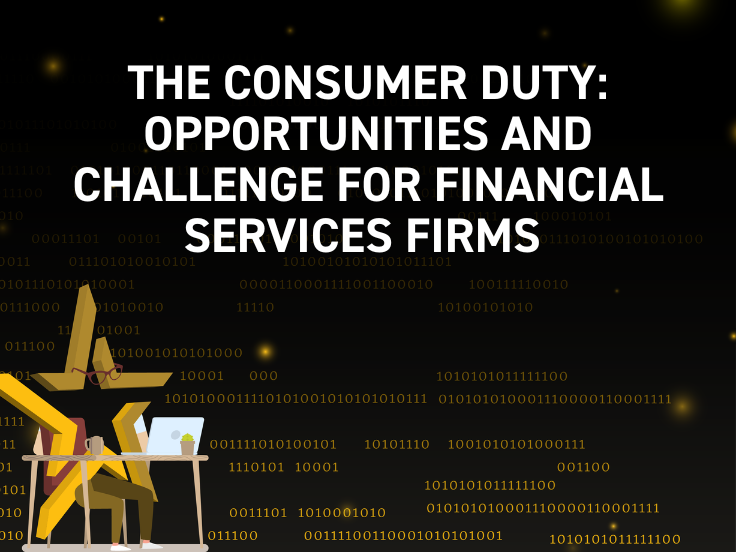
Open Banking: a powerful tool still underused by SMEs
 09:56 06 Sep 2021
09:56 06 Sep 2021  The relationship between financial institutions and SMEs has been contentious over the past few years. Many small businesses often find accessing finance difficult, and when they have been offered finance, it can be quite expensive compared to their larger counterparts. The introduction of Open Banking has initiated a broadening of the financial sphere, coupled with the emergence of challenger banks and fintech, the options for smaller businesses are increasing which is positive. However, Open Banking and more digitalised banking is often underused by smaller businesses, partly due to a lack of awareness and partly due to concern over financial security.
The relationship between financial institutions and SMEs has been contentious over the past few years. Many small businesses often find accessing finance difficult, and when they have been offered finance, it can be quite expensive compared to their larger counterparts. The introduction of Open Banking has initiated a broadening of the financial sphere, coupled with the emergence of challenger banks and fintech, the options for smaller businesses are increasing which is positive. However, Open Banking and more digitalised banking is often underused by smaller businesses, partly due to a lack of awareness and partly due to concern over financial security.
There is still a very large reliance on the major high street banks and the effects of the pandemic are likely to have strengthened this. The government was urging for a move away from the main high street banks, however, when the crisis hit and small businesses were in need of emergency funding, it was the main high street banks that provided the lending first, leaving those who had moved to smaller banks or challengers out in the cold. This has created a situation where many small businesses now feel the need to have a high street bank account, even if not their main business account, in case another issue arises so they can access funding quickly.
Since the emergency COVID funding has ended, it has been reassuring to see the vast majority of banks honouring the ‘Pay As You Grow’ initiative, supporting the debt burdened small businesses, allowing them to begin to return to normality and restore their businesses. Given that 60% of small businesses now have some form of debt and that 47% of those with debt consider it unmanageable,[1] this scheme will be a lifeline for many small businesses throughout the UK.
There is concern that the availability and affordability of credit will begin drying up following the emergency loans provided over the past year and a half. It often seems that after an economic crisis, financing to small businesses becomes tight. Indeed, FSB’s availability and affordability of finance tracker has shown that both metrics have been in negative territory since 2012. We would hope to see finance expanded to small businesses on the back of the government’s investment campaign, but it seems likely that financial institutions will continue to view small businesses as risky and limit their lending.
Similarly, green financing is likely going to become an ever more important type of lending as we move towards the UK’s Net Zero target. Many small businesses already want to do more to limit their carbon emissions, but the steps to do so can be costly. Financial institutions will need to reframe the way they assess lending as investing in carbon reduction initiatives such as insulation does little to increase a business’s profitability, resulting in minimal financial return on investment. Without broader parameters lenders may not agree to fund these types of projects.
As the economy develops out of the hardship of COVID-19, Open Banking will continue to offer solutions to many issues small businesses face. One of the largest problems facing Open Banking with respect to small businesses, however, is the lack of awareness of what it is and concern over using it. The name itself worries some smaller businesses insofar as that they’re concerned that their personal financial data will be accessible by others – overcoming this will be the first major step to uptake. The other issue is the lack of awareness of how it can benefit their businesses. Many small businesses are very used to the way in which they operate and so expanding into digitalised banking often seems unnecessary despite the fact it could significantly help with their transactions, cashflow management, payments, and many other aspects of their day-to-day business management.
[1] Data results from FSB’s Q2 Small Business Index
[The author of this article, Martin McTague, is National Vice Chair, Policy and Advocacy, at Federation of Small Businesses]
Join us at our upcoming Campfire next 8th September, where we will be launching a local chapter in Brazil to support the development and growth of the country’s open financial system.
Helen Child, Founder & CEO, Open Banking Excellence




 " alt="">
" alt="">

 " alt="">
" alt="">
 " alt="">
" alt="">
 " alt="">
" alt="">
 " alt="">
" alt="">
 " alt="">
" alt="">
 " alt="">
" alt="">
 " alt="">
" alt="">
 " alt="">
" alt="">
 " alt="">
" alt="">